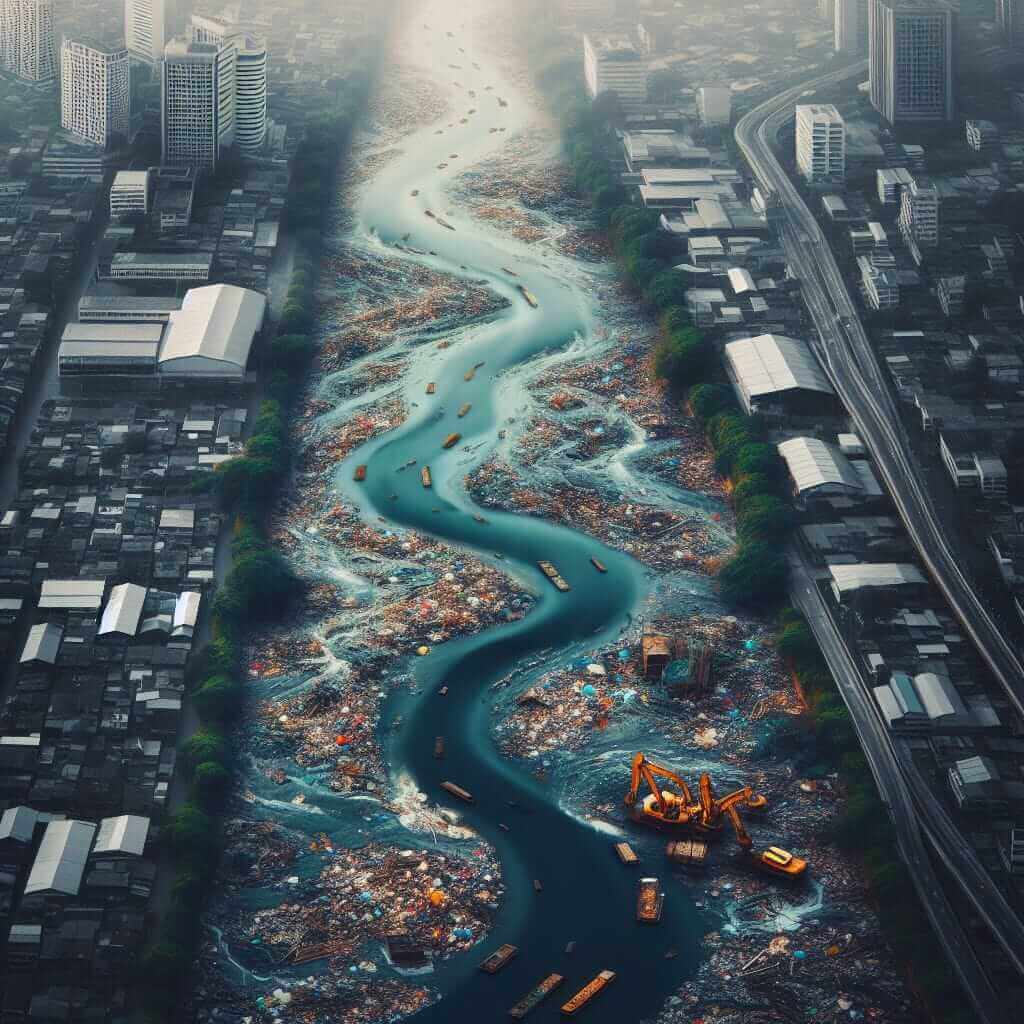The IELTS Speaking test assesses candidates on four criteria: Fluency and Coherence, Lexical Resource, Grammatical Range and Accuracy, and Pronunciation. Questions about environmental issues are common due to their relevance and complexity, offering a rich ground for candidates to showcase various language skills.
Questions concerning environmental issues often appear in Part 3, where candidates are expected to discuss abstract ideas and opinions. Here, we’ll guide you through how to describe a significant environmental issue in your country, providing sample answers and analysis to help you prepare effectively.
Part 1: Introduction and Interview
Common Questions from the Examiner
- Can you tell me about an environmental issue that concerns you?
- Is pollution a big problem in your country?
- How do people in your country deal with waste?
Suggested Answer
Question: “Can you tell me about an environmental issue that concerns you?”
Answer: “Certainly. One pressing issue that deeply concerns me is air pollution. In urban areas, the air quality deteriorates due to the heavy traffic and industrial activities. This has led to an increase in respiratory diseases among residents. Poor air quality also affects biodiversity, contributing to the decline of urban wildlife populations.”
Analysis: This response demonstrates clear fluency and coherence. Key terms like “air pollution,” “urban areas,” and “biodiversity” show a good lexical resource, and the response seamlessly connects various aspects of air pollution.
Part 2: Long Turn
Cue Card
You should say:
- What the environmental issue is
- What causes it
- How it affects the environment and people
- What can be done to address it
Sample Answer
“In my country, Vietnam, a significant environmental issue is water pollution. This problem is primarily caused by the discharge of untreated industrial waste and domestic sewage directly into rivers and lakes. As a result, aquatic ecosystems are severely damaged, and many species of fish and plants are endangered. Additionally, it poses serious health risks to people who rely on these water sources for daily use.
To combat this, stricter regulations must be enforced to ensure industries treat their waste before releasing it. Public awareness campaigns can educate citizens on the importance of keeping our water bodies clean. Efforts to rehabilitate the polluted water bodies, such as planting vegetation along riverbanks to filter pollutants, can also be beneficial.”
Analysis: This answer includes detailed content related to the cue card prompts and uses specific vocabulary (e.g., “untreated industrial waste,” “aquatic ecosystems,” “endangered”). The structure is coherent and allows the candidate to fully develop their ideas.
Part 3: Two-Way Discussion
Sample Dialogue
Examiner: “How serious are environmental issues in your country?”
Candidate: “Environmental issues in my country are extremely serious. Apart from water pollution, deforestation and air pollution are rampant due to rapid urbanization and industrialization. Measures taken so far have been insufficient, and the situation continues to degrade.”
Examiner: “Do you think individual efforts are enough to combat environmental issues?”
Candidate: “Individual efforts, while essential, are not sufficient on their own. Collective action and government intervention are crucial. Policies need to enable green practices and enforce environmental regulations more stringently. For example, subsidies for renewable energy can shift public dependency away from fossil fuels.”
Analysis: In this two-way discussion, the candidate effectively uses discourse markers like “apart from” and “for example.” The responses are well-structured, showing a high level of coherence and fluency. The answer demonstrates problem analysis and awareness of broader environmental practices.

Key Vocabulary and Structures
Vocabulary:
- Pollution: /pəˈluːʃən/ – The presence of harmful substances in the environment.
- Biodiversity: /ˌbaɪoʊdaɪˈvɜːsəti/ – The variety of life in the world or a particular habitat.
- Aquatic ecosystems: /əˈkwætɪk ˌiːkəʊˈsɪstəmz/ – Ecosystems in a body of water.
Useful Phrases:
- “One pressing issue…”
- “This has led to…”
- “Stricter regulations must be enforced…”
Examiner’s Advice
- Practice fluency: Regularly practice speaking on various topics to improve your confidence and fluidity.
- Expand vocabulary: Learn and use specific vocabulary related to common IELTS topics.
- Stay informed: Read up on current environmental issues to have content to discuss.
- Mock interviews: Engage in mock speaking tests to get comfortable with the structure and timing.
- Self-recording: Record and review your responses to identify areas for improvement.
By utilizing these strategies and preparing effectively, you can significantly enhance your performance in the IELTS Speaking test. Aim to integrate these tips naturally into your responses and showcase your language skills comprehensively.